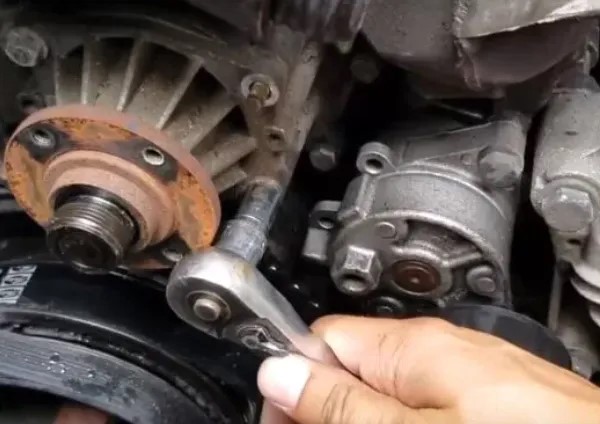Water pumps are crucial in many applications, from household water supply systems to agricultural irrigation and industrial operations.
Like any mechanical equipment, water pumps have a finite lifespan and may need replacement due to wear, inefficiency, or failure.
Understanding the cost factors associated with replacing a water pump is essential for budgeting and making informed decisions. This in-depth article breaks down the costs and provides valuable insights to help you plan a water pump replacement efficiently.
What Is a Water Pump, and Why Might It Need Replacement?
A water pump is a device designed to move water from one place to another, often under pressure, to serve various purposes. They are widely used in domestic settings (e.g., for well water systems), agriculture (e.g., irrigation pumps), and industries (e.g., cooling or heating systems).
Over time, water pumps can develop issues such as:
- Leaks: Caused by worn seals or gaskets.
- Decreased Efficiency: Due to internal wear or clogging.
- Overheating: Often the result of poor lubrication or faulty bearings.
- Failure to Operate: Caused by electrical or mechanical breakdowns.
When repairs are not feasible or cost-effective, replacing the pump becomes necessary.
Factors Influencing the Cost of Replacing a Water Pump
The cost of replacing a water pump depends on several factors, including the type of pump, its application, labor requirements, and additional expenses.
1. Type of Water Pump
The type and size of the water pump significantly influence its cost.
- Residential Pumps: Submersible or jet pumps for well systems typically cost between $200 and $800 for the pump alone.
- Agricultural Pumps: Large centrifugal pumps or booster pumps can range from $500 to $3,000 or more.
- Industrial Pumps: Heavy-duty pumps designed for factories or processing plants often exceed $10,000.
2. Application
The intended use of the pump—whether for a single home, an irrigation system, or an industrial process—affects both the initial purchase price and the installation cost.
3. Labor Costs
Labor costs vary depending on the complexity of the replacement and local rates for technicians or plumbers.
- Simple installations may cost between $150 and $500 in labor.
- Complex projects, such as replacing a pump in a large irrigation system, may incur labor costs ranging from $1,000 to $3,000.
4. Location
Geographical location plays a role in cost due to variations in labor rates and material prices. Urban areas typically have higher service charges than rural areas.
5. Additional Costs
- Accessories: Pipes, fittings, or electrical components may need to be replaced, adding $50 to $500 to the cost.
- Permits: Some installations require permits, especially for large systems, which can cost $50 to $200.
- Disposal Fees: The cost to remove and dispose of the old pump may range from $50 to $150.
Cost Breakdown: A Closer Look
Here is an average cost range for replacing a water pump based on application:
| Type of Pump | Pump Cost | Labor Cost | Total Estimated Cost |
|---|---|---|---|
| Residential Well Pump | $200 – $800 | $150 – $500 | $350 – $1,300 |
| Agricultural Irrigation Pump | $500 – $3,000 | $500 – $1,500 | $1,000 – $4,500 |
| Industrial Pump | $3,000 – $10,000+ | $1,000 – $3,000+ | $4,000 – $13,000+ |
DIY vs. Professional Replacement
DIY Replacement
For mechanically inclined individuals, replacing smaller or simpler water pumps can be a do-it-yourself (DIY) project. This option can save money on labor costs, but it requires proper tools, knowledge, and safety precautions.
Advantages:
- Lower overall cost.
- Flexibility in scheduling.
Risks:
- Potential damage to the pump or system if not installed correctly.
- Voiding the warranty if installed improperly.
Professional Replacement
Hiring a licensed technician or plumber ensures proper installation, compliance with local codes, and peace of mind. While this option is more expensive, it minimizes the risks associated with incorrect installation.
Ways to Save on Water Pump Replacement
- Compare Quotes: Obtain estimates from multiple service providers to find the best price.
- Choose Energy-Efficient Models: Though initially more expensive, energy-efficient pumps reduce electricity costs over time.
- Regular Maintenance: Keeping the pump well-maintained can delay the need for replacement.
- Bulk Purchases: For farms or industries, buying multiple units at once may qualify for discounts.
Real-Life Examples of Replacement Costs
Example 1: Replacing a Residential Well Pump
A homeowner in a suburban area needed to replace a malfunctioning well pump. The chosen pump cost $450, and a plumber charged $250 for installation. Additional piping cost $50, bringing the total to $750.
Example 2: Replacing an Agricultural Pump
A farmer replaced a centrifugal irrigation pump for $2,000. Labor and additional piping costs added $1,200, resulting in a total of $3,200.
Example 3: Industrial Water Pump Replacement
An industrial facility replaced a large-scale booster pump for $8,000. Due to the complexity of the installation, labor costs reached $3,500, with $500 in additional expenses, totaling $12,000.
Conclusion
Replacing a water pump is a significant investment, but understanding the associated costs can help you budget effectively.
Factors such as the type of pump, its application, and labor requirements all play a role in determining the total cost. Whether you choose to replace the pump yourself or hire a professional, planning ahead and maintaining your equipment can save time and money in the long run.
Investing in a high-quality, energy-efficient water pump not only ensures reliable performance but also reduces operating costs over time.
By carefully evaluating your needs and exploring cost-saving options, you can make a well-informed decision that aligns with your budget and long-term goals.
Also Read
Everything you need to know about Hot Water Circulation Pumps
The ultimate guide to Sump Pumps in basements

